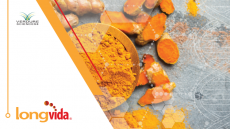Dietary supplements and the U.S. military: Preparing and protecting the troops

Earlier this week, a members-only webinar hosted by the Council for Responsible Nutrition (CRN) gathered leading voices on military health and wellness who provided a picture of an extensive operation dedicated to the performance and resilience of the military community.
“The webinar was an opportunity for participants to learn about nutritional studies underway, the thinking about dietary supplements from different areas within the U.S. military, and opportunities to support U.S. service members’ and veterans’ health and wellness,” CRN shared in a statement.
According to results from a recent military survey, some 75% of the service members polled reported using dietary supplements at least once a week or more, “especially combination products and proteins/amino acids often used to purportedly enhance physical performance.”
USARIEM: Researching nutrition for combat readiness and recovery
The United States Army Research Institute of Environmental Medicine (USARIEM), the Department of Defense’s laboratory for warfighter health and performance research, continues to investigate nutritional strategies to prepare warfighters for the arduous conditions of multi-stressor operations.
Whether in extreme heat, cold or high-altitude environments, service members burn many more calories than they consume, and the body begins to divert amino acids away from skeletal muscle and repurpose them for other processes like acclimation, wound healing and load carrying.
“The body is really put into low anabolic/high catabolic state, which can be detrimental to skeletal muscle mass and also limit muscle recovery in the evening periods or the rest periods in between missions,” explained Stefan Pasiakos, Ph.D., FACSM, director of the Office of Dietary Supplements (ODS) at the National Institutes of Health. “Together, these can lead to an increase in injury risk and also lead to degraded physical performance.”
Formerly a research scientist at USARIEM, Dr. Pasiakos had focused much of his work on dietary protein and the role of supplemental amino acids in maintaining or optimizing muscle mass during strenuous operations. In his presentation, he traced the evolution of 15 years of military protein research from lab to field studies in conditions of severe deprivation.
The conclusion: “[W]hen you are able to consume plenty of dietary protein consistent with protein recommendations [established] for athletes and service members by AR40-25, there was no advantage in going above and beyond with supplemental whey protein.”
Dr. Pasiakos said that research continues into the anabolic properties of essential amino acids in muscle repair and recovery and during extended period of sleep deprivation.
Lee Margolis, Ph.D., a nutrition physiologist with the Military Nutrition Divisions at USARIEM, spoke to the viability of ketone supplementation, which has been proposed as an alternative fuel source during military operations. While he noted that initial investigations were very promising, subsequent research (including USARIEM’s own recently published study) reported mixed results, showing no effects or even impairment in physical performance with ketone supplementation compared to carbohydrates alone.
Given these findings, he said that more work is needed and that USARIEM would not recommend incorporating ketone supplements into military operations at this time.
“We’re not really ever going to be able to completely abolish the energy deficit that occurs during military operations […], but if we can find an appropriate intervention to help optimize fuel use and maybe overcome some of these negative effects, that’s really a main goal of our research,” he added.
OPSS: Educating the troops on supplement use
In 2022, the Department of Defense issued DoD instruction 6130.6, a policy that mandated dietary supplement education and conditions of use throughout the military community. It also established Operation Supplement Safety (OPSS) as the official program charged with carrying out this mission.
Andrea Lindsey, director at OPSS, explained that the genesis of the program dates to a 2012 call to educate service members on the safe use of supplements following a rash of severe adverse events linked to Oxy-Elite Pro and Jack3D supplements. These products, since banned by the U.S. Food and Drug Administration (FDA), promised weight loss, performance enhancement and muscle building but contained a synthetic stimulant called DMAA.
“Unfortunately, we know that adverse events and positive drug tests can present a threat to readiness,” Lindsey said. “We want to make sure service members are fit and ready and healthy to serve, and so it’s all about the education because we know it’s all preventable.”
To educate military personnel and the wider community, OPSS has developed several tools including the DoD Prohibited Dietary Supplement Ingredient List, which currently contains approximately 800 items with some 4,600 synonyms. Its website also houses Ask the Expert, Check Your Dietary Supplement (OPSS Scorecard), and adverse event reporting modules to tackle questions about supplement safety and mitigate risks.
Topics in focus within the last year include the berberine hype as nature’s Ozempic, Tribulus terrestris and Tongkat ali as testosterone boosters, tianeptine known as “gas-station heroin”, the caveats of nootropic ingredients and prohibited uses for Blue Lotus.
Looking forward, the program is working on a health professional module coming late 2024 and on its comprehensive list of science-backed ingredients called the OPSS Ingredient Database, which already includes data sheets on approximately 1,500 primary substances with some 8,900 synonyms.
OPCC&CT and CHAMP: Towards a whole health approach
There is a cultural shift in the military health care system towards a whole health approach, said speakers from the Department of Veterans Affairs (VA) and the Consortium for Health and Military Performance (CHAMP).
Benjamin Kligler, M.D., executive director at the Office of Patient Centered Care & Cultural Transformation (OPCC& CT) at the VA talked about the growing network of integrative patient-driven programs that “empowers and equips people to take charge of their health and well-being and live their life to the fullest”.
Within this approach, he said that adding dietary supplements to the VA formulary has been an uphill battle but noted that some supplements like probiotics, vitamins and minerals, melatonin and fish oil are currently covered by VA pharmacy benefits.
“There’s a whole multi-layer process of introducing a new nutraceutical or medical food into the formulary, and there are many, many layers of review,” he explained. “[S]o it’s a long journey, and this is just part of why, to be honest, in the last couple of years, we have not made this the primary focus of our work.”
Captain J. Russell Linderman, Ph.D., deputy director at CHAMP, presented the consortium's range of fitness, rehab and recovery, supplement, nutrition and psycho-social resources as part of its holistic evidence-based approach to optimizing performance in the field and return to duty. Recognizing that “musculoskeletal injuries are one of the leading causes of lost duty time and disability in both active duty and veterans”, he said that CHAMP’s human performance research is presently focused on exploring astaxanthin, curcumin and niacin to support skeletal muscle in acute heat injury.
Next on the list will be identifying nutritional strategies to protect the intestine, the small intestine and the kidneys, along with continued exploration of the role of omega-3 fatty acids for optimizing mental and physical performance.
















